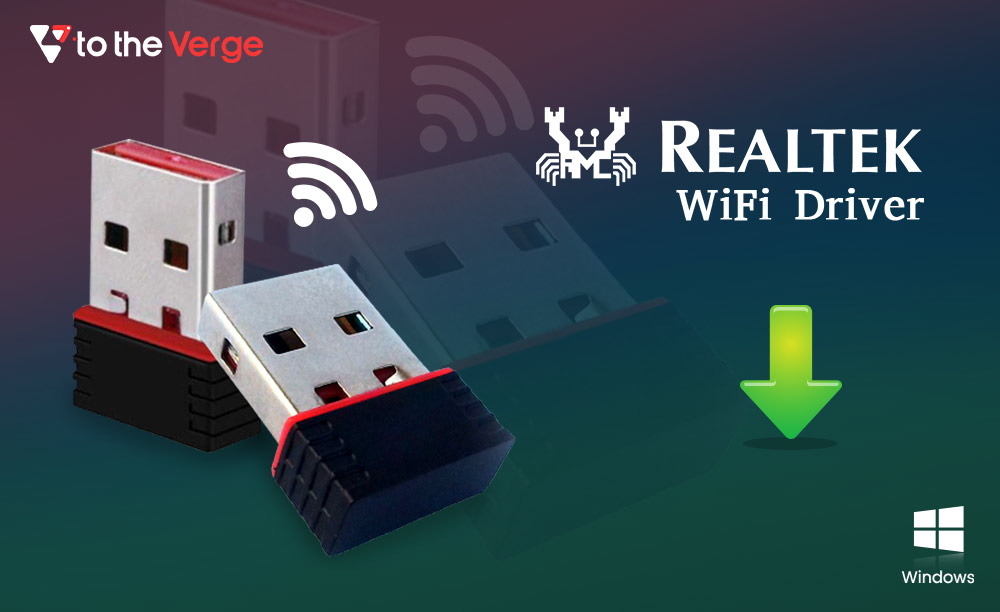Jesse Alton, Founder of AngellXR and Co-Chair of OMI Group, shares his vision of creating an open, community-driven, interoperable metaverse.
‘To The Verge’ had an enlightening conversation with Jesse. He opened up about his journey as a startup founder, what inspires his actions, his goal to create an open-source, interoperable metaverse, and more. Stay tuned till the end to learn surprising facts!
https://www.youtube.com/watch?v=0Q1QWQdIEtg
About AngellXR and OMI Group
In 2013, Jesse founded AltonTech, Inc., focusing on co-creating products with startups. Then, inspired and guided by his deep passion for the growth of technology and upliftment of the entrepreneurial community, in 2017, he founded AngellXR, which is an incubation community. AngellXR, as Jesse calls it, is a ‘safe place’ for businesses and startups to put their ideas and products. (xanax)
“AngellXR comes as a safe harbor. People can put their product here; we can add product management, product design, and skills to it; if it’s open-source, no worries; if it becomes for-profit, we can talk about what we’d want. But the whole point is that it is a ‘safe space.’”
Having tried his best to find out and implement ways to support and build a positive community, Jesse acknowledged the persistent ‘interoperability’ challenge. To address it, he came up with the idea of OMI Group, which he believes is the most successful project of AngellXR. It uses a working group that co-creates protocols and enables an interoperable inventory or avatar system. Jesse described it as a system that would allow people to use rewards/tokens/gifts won in games across different platforms.
He further explained, “The whole group co-creates, and their platforms and products benefit from creating together. OMI Group is not a core profit company, not a platform, or even a non-profit. It’s just an IP Agreement that says we won’t sue each other. So it is pretty straightforward and easier for people to understand if they get involved.”
Building an Open Metaverse
Since the beginning of his journey in the emerging technology space, Jesse believed in the potential of 360 Cameras and Images, Virtual Reality, Augmented Reality, and Artificial Intelligence. Through his experiences as an entrepreneur, he realized raising money from the market claiming to build a ‘metaverse’ would be deception. He added, “It is impossible to own the metaverse. We are not building multiple metaverses. So, anybody who raises money from the investors saying they’re building ‘a metaverse’ is also wrong.”
Jesse shared the choices he believes anyone working in the industry or aspiring to contribute to the metaverse would come across.
“I think there are two choices about building a metaverse:
- We can compete with each other like a space race to the moon. And try to defeat, acquire each other, that is the old school way of doing business. And for many, that is the path that they’ve chosen.
- The other option is to choose to work together, co-create, and see yourself as a part of the metaverse, rather than competing to be its owner or origin.”
Here is where he, along with his team and ventures, aims to support and promote co-creating the metaverse, building a community where everyone can participate — designers, developers, and business people.
Cross-Functional Role of XR for the Metaverse
Jesse thinks that XR or extended reality is a comfortable blanket term used by people to comprehend the metaverse. He believes that XR and the Metaverse are the same to some extent. The former word helps to describe the latter.
“XR is for describing the technologies the experience types of the metaverse. So, in my definition, XR is the variable ‘x’ — VR, AR, and MR. The metaverse consists of extended realities, spatial audio, the internet, apps, games, and more things.”
He further explained that different XR technologies would be a pathway to the metaverse. People would get into the metaverse through various mediums. Some would experience it through AR. Others who can afford the headsets would get the exposure through VR.
“More and more people are getting their first smartphone every day. And through portals like WebXR, they are getting the taste of VR, AR, 360 Content, and other things. So, they stay where they are but are still being pulled in.”
He said, “I think, to sum up, XR is very much part of the majority of the metaverse.”
In Jesse’s opinion, if the whole concept were to be explained in the most generic way possible, he’d say the metaverse is a digital counterpart of our universe. And subsequently, he thinks the fact that there is only one metaverse is not up for debate.
“The metaverse itself is only one; this fact is not up for debate. People say it’s still getting defined. I say, no, it is not. It’s getting iterated on, as does everything else in our lives.”
Creating an Open-Source and Interoperable Platform
Jesse consults different platforms and projects on digital transformation processes as a civic technologist. He explained that three aspects must be aligned to make a project or a platform open-source and interoperable. Those three aspects are feasibility, viability, and usability.
Jesse elucidated on the community people who command the aspects mentioned above.
- First are the developers who own the feasible side of a project’s equation, which implies they have to cater to the time and cost variables and deal with effectiveness and efficiency.
- The next part of the equation is people who either have excellent knowledge of business requirements, are good at marketing and sales, have a lot of funds, or have experience as an entrepreneur. These people command viability.
- And lastly, the designers and researchers interact with the end-users and complete the equation by bringing in the usability aspect.
With these three balanced, a platform can become interoperable.
“We have these three domains — feasibility, viability, and usability, which are mostly at odds with each other. So, my work here is to help align the three domains and ensure that neither developer needs, business needs, or user needs dominate the conversation. There is a delicate balance between these conflicts. And to be honest, these tensions are good. Because they lead to better discussions and outcomes.”
Lessons from Past Experiences for Aspiring Entrepreneurs
Jesse has been an enthusiastic entrepreneur for a long time. He has developed several products throughout his journey and faced his share of setbacks. For instance, while working on the idea of an open metaverse, he struggled the most with not knowing how to code. Thus, he challenged himself to focus and get better at coding.
“I took it as a personal goal to focus more on coding. Since then, I have been on GitHub almost every day. I got familiar with GitLab. I wanted to get better with javascript and three.js. So, I set a goal. I started getting projects. And one of the big projects that I want to make for the metaverse is XR Showcase.”
Jesse shared that XR Showcase is an open-source showcase of Web XR experiences built by himself from scratch. He kept the platform open for people to develop and improvise on. But that didn’t happen. And the entrepreneur realized an essential fact about human nature, which helped him strategize for AngellXR.
“I built XR Showcase and put it out there, hoping people would remix and build on top of it and make it their own. But, to date, nobody has remixed it or tried to make it their own. That helped inform the strategy that even if a good idea or base is available, people still prefer to build their own thing as they want to be the founder. So, this helped reinforce the goal of AngellXR. It was a tough lesson when people didn’t flood to build on the code, but I still maintain it, and it’s open for people.”
Another essential lesson Jesse shared is the importance of agile practices. He encourages people to accept and adopt good management practices to prevent productivity losses caused by communication gaps.
“On the metaverse projects, I’m often the one who is promoting these agile things. It feels good, and I know a lot of the projects where they can improve greatly is by adopting some good practices, tracking their progress, and not relentlessly trying to sprint ahead.”
The Drive to Build a Community
Jesse shared he strives to build a community/place where people feel comfortable asking questions and finding what they need.
“My idea is to build a community without a defined and typical path to revenue. I don’t have any sinister plans to charge these people for being part of the community. Instead, the aim is to get the right people in the same room to help them work together so that we can make the things we intended to make.”
Investing time and energy in his projects, Jesse believes in succeeding holistically rather than rushing things to feel important or trying to make a mark. That is why he believes in and focuses on building ecosystems like AngellXR and OMI Group so that all the growth happens naturally. So, through collaboration and co-creation, he wants to introduce interoperability opt-in fashion, providing people an easy way to be a part of this space if they’d like.
“Just creating these conducive ecosystems is the majority of my effort because it’s laying the foundation to be able to do the other things that we want to do without rushing into complications just to feel important.”
Vision And Plans for the Future
Jesse envisages and hopes for an egalitarian metaverse. He believes that people must consider themselves nodes of this expanding network rather than be its origin. A space where all the people and their efforts/work are acknowledged and respected is where, he thinks, metaverse will succeed as a concept.
“I think we need to make the open metaverse more desirable than a closed system. And the only way to do that is to acknowledge that every time one of us succeeds, it could lift the rest of us if we choose it to be so. You might be a creator of a western-style experience and might not want any space-themed avatars, and that should be okay. So, being respectful, acknowledging all of our accomplishments individually, and helping lift up the overall network — I think that is the key to a positive metaverse. And so, we’re going to see people who create methods of interoperability or integration that will never have a path to revenue are just as important as people making consumer applications that let you build an avatar or something to that effect. That is what I see.”
On his plans for the future, Jesse stood firm on his ground to help people connect, collaborate, and co-create, supporting all kinds of organizations and communities to tap into their potential for the greater good.
“We just want to be a catalyst in the creation process of the metaverse. We want to champion for-profits as well as non-profits because both are part of something bigger. I think these things are imperative for the metaverse to be successful, and it’s worth pursuing.”
Conclusion
The interaction we had with Jesse gave us a different perspective on the subject matter of metaverse. Having understood and worked on the technical and meaningful aspects of the subject, Jesse emphasizes considering metaverse as a community project that cannot be and should not be owned by anyone. He strives to help build a community where people feel comfortable creating and sharing but, most importantly, stay compassionate.
Jesse Alton is a civic technologist, product designer, manager, strategist by profession, and entrepreneur by heart. He is the Founder of AngellXR and the Co-Chair of OMI Group. Apart from consulting businesses, government organizations, and individuals aligning with their developers, users, and business requirements, he is committed to personal growth.
Khatija is a Senior Editor at To The Verge. Her interest in tech started when she came across AI, IoT, and XR. Always keen to learn the latest tech peripherals, Khatija loves to interact with tech industry experts and dig for information relating to emerging technologies. When not nerding over technology, she can be found on the couch binging mystery or sci-fi movies.


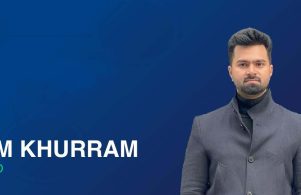
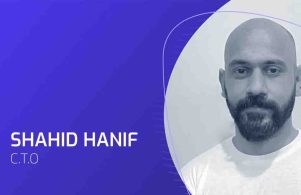
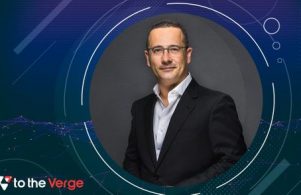
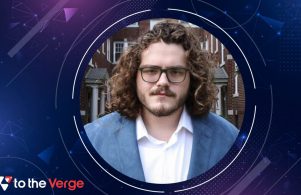

![How to Update and Reinstall Keyboard Drivers on Windows 10/11 [A Guide]](https://wpcontent.totheverge.com/totheverge/wp-content/uploads/2023/06/05062841/How-to-Update-and-Re-install-Keyyboard-Drivers-on-Windows-10.jpg)
